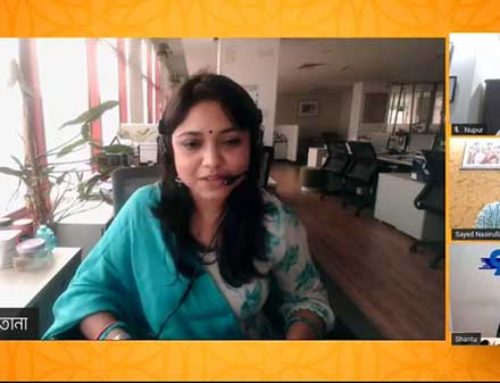Introduction of the organisation
Caritas Bangladesh (CB) is a Bangladesh, local, national, non-profit, development organization. CB was founded in 1967 as the eastern branch of Caritas Pakistan. Following the cyclone of November 1970 it was re-organized and became known as CORR (Christian Organization for Relief and Rehabilitation) and took on the character of a national organization on January 13, 1971. The name Caritas was re-introduced in 1976.
Caritas Bangladesh has its Central Office in Dhaka. There are eight Regional (or Diocesan) Offices in Barishal, Chattogram, Dhaka, Dinajpur, Khulna, Mymensingh, Rajshahi and Sylhet. In all these places Caritas is operational in Integrated Development, Disaster Management and Human Resource Development, under a central management.
CB restricts itself at present to 208 upazilas (sub-districts) for integrated human development work. During emergencies, such as natural disasters, Caritas is operational in any part of the country.
CB is a member of the Caritas Internationalis, a confederation of 165 Caritas Member Organisations over 200 countries and territories.
Programmatic interventions in response to COVID-19
Since 17 March to till the date, Caritas Bangladesh (CB) reached protective and preventive messages to 1,131,765 people (226,403 HHs) under 490 unions of 130 upazila (sub-districts) in 43 districts and more than 80 wards under 10 Municipalities and six City Corporations. CB implemented the followings to reach the above mentioned people.
- Staff members and volunteers of CB, disseminated awareness messages on COVID-19 of Directorate General of Health Service (DGHS) of Bangladesh and WHO through distributing more than 189,500 leaflets to the communities;
- Distributed 5,320 hygiene kits packages (Soap, detergent powder, bucket, mug etc.), 874 hand gloves, 2,198 face masks, 374 bottles of hand sanitizers and 20 sets of PPE;
- Placed more than 482 PVC banners/posters containing awareness and protection messages of government of Bangladesh and WHO at different public spaces including local markets, roadsides, union, upazila (Sub-district) Parishad (Council) premises etc.;
- Installed 40 Hand washing points at public places;
- Distributed food-nutrition support to 1,106 HHs and cash support to 397 HHs;
- Concern staff members under Caritas Micro Finance Program (CMFP) and Integrated Community Development Projects (ICDPs) are communicating and disseminating protective and preventive messages to 320,510 members under 14,634 community based groups;
- Staff members of Disaster Disk Reduction (DRR) projects under Disaster Management (DM) sector are communicating and disseminating protective and preventive messages to 15,599 members of 150 Union Disaster Management Committees (UDMCs), 508 Ward Disaster Management Committees (WDMCs) and 1,257 Task Forces (TFs).
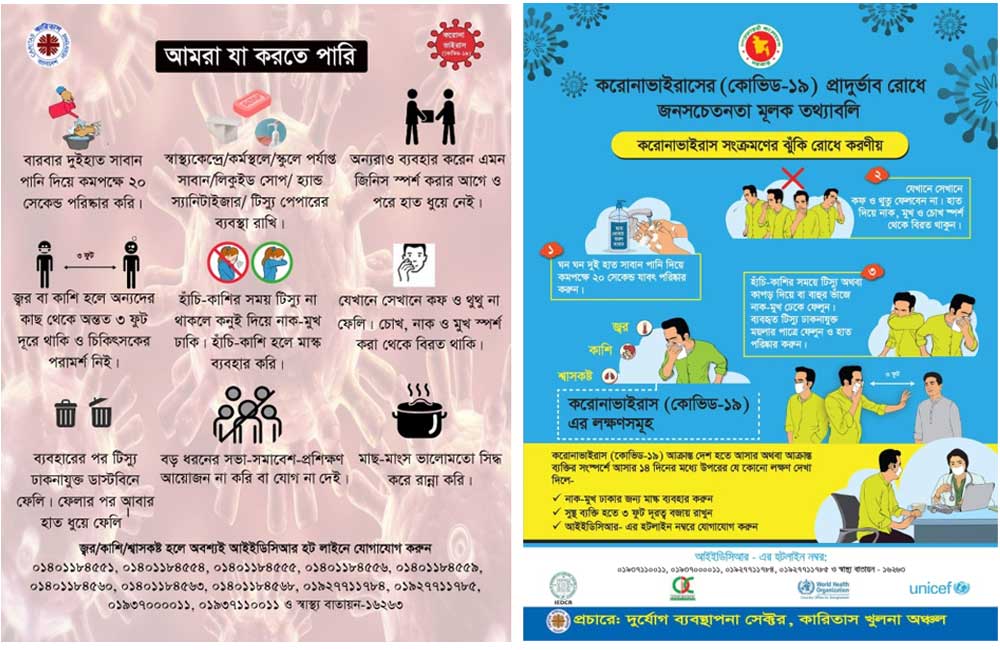
Printed poster and leaflet by CB containing government and WHO’s awareness messages.
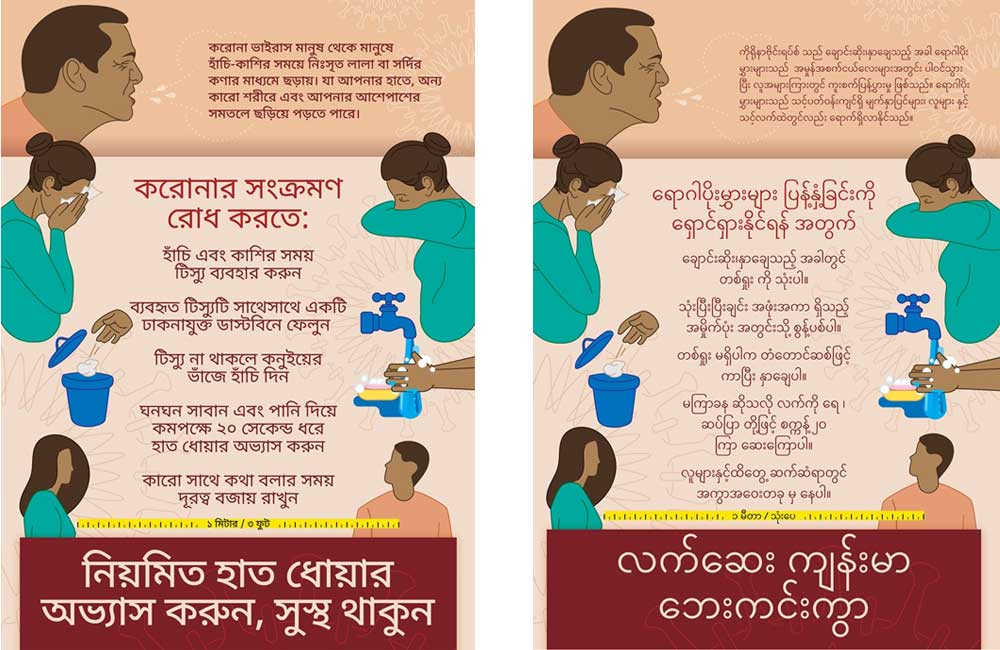
Translated into local languages of WHO’s awareness messages for host and Rohingya communities.
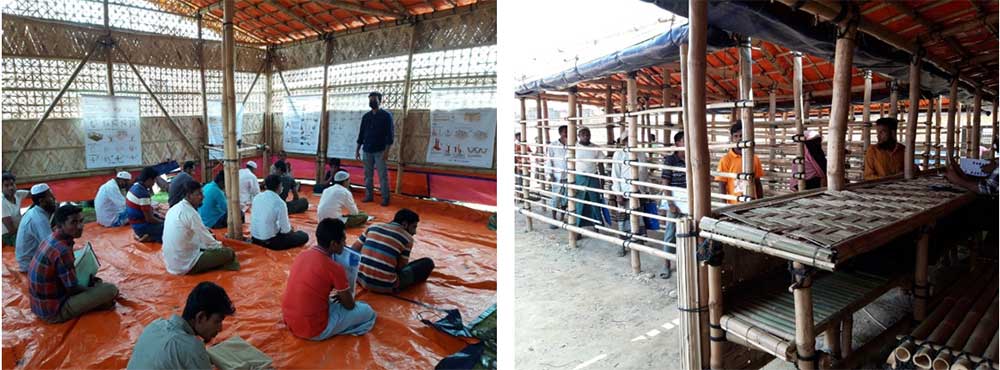
Awareness sessions in small groups and distribution of leaflets at Rohingya communities.
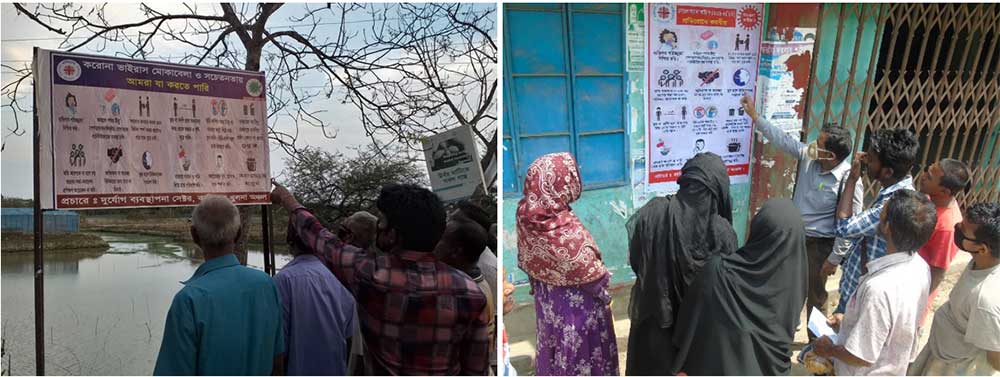
PVC posters at public places for communities containing GoB and WHO’s awareness messages
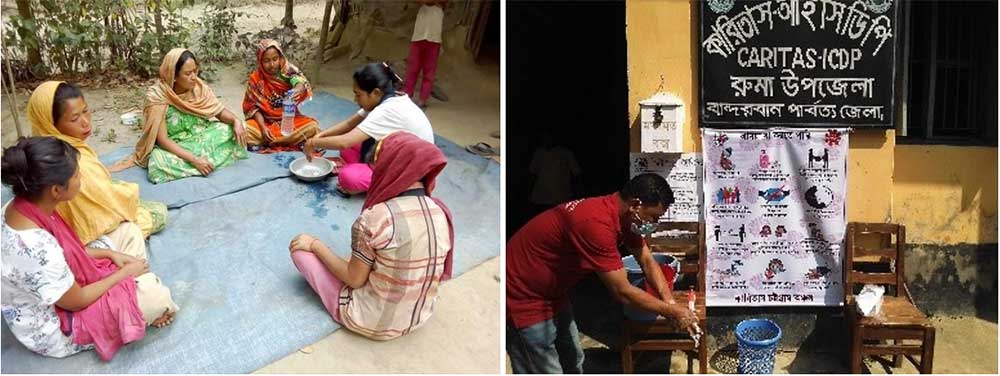 Handwashing demos at office and community levels
Handwashing demos at office and community levels
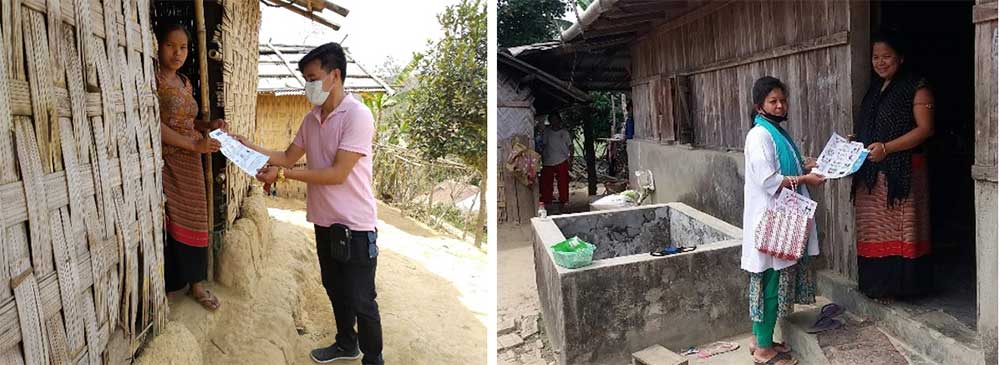
Distribution of leaflets and door to door discussion on COVID-19 awareness messages at Remotest areas in Chittagong Hill Tracts of Bangladesh.
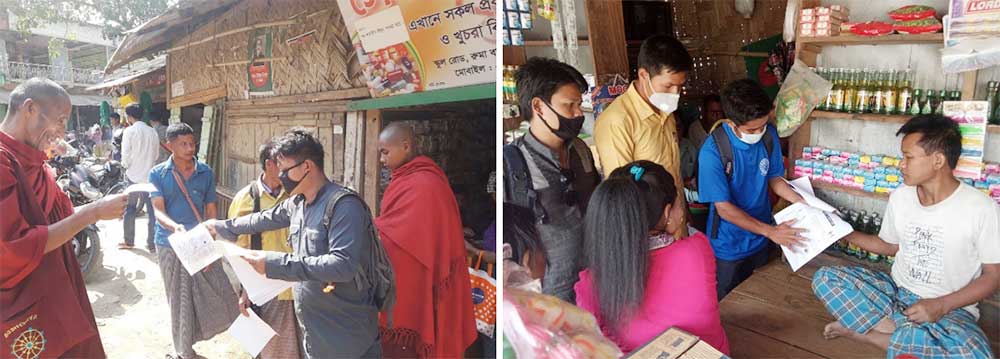
Distribution of leaflets and discussion on COVID-19 awareness messages at local market and public places.
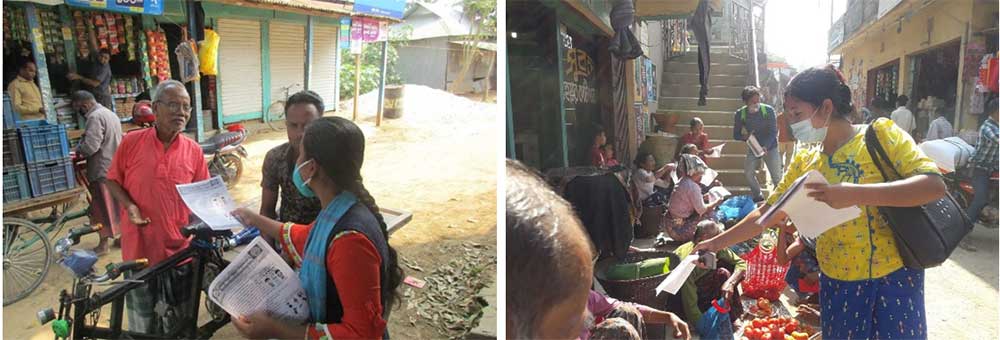
Distribution of leaflets and discussion on COVID-19 awareness messages at communities.

Dissemination of COVID-19 awreness messages to pedestrains
Future outlook and recommendations
What are the lessons learnt from the COVID-19 response till date?
- Rapid and instant measures on awareness, preparedness and response for affected people is very important.
- Utilization of existing resources in terms of fund, human resources, community based forums e.g. volunteers, task forces, groups etc. and other logistics played important role to reach communities
What are the anticipated future challenges?
- Amid countrywide shutdown situation reaching to communities to identify most affected vulnerable people is very challenging;
- Low wage-earning groups e.g. beggars, day labourers, rickshaw-pullers, van-pullers, transport workers, restaurants workers, sex workers, transgender, hawkers and roadside tea stall owners across the country.
- It is big challenge of Identification and reaching to the lower middle class families who are now suffering from food security and other basic services but they are not comfortable to disclose their situation;
- Ensuring food security, health care services and secured livelihood options of low-wage earners and lower middle class families is a big challenge during this shut down situation and immediate after this crisis.
Recommendations-
- Coordinated and collaborated response is required to save lives and long term economic impacts of rural and urban people;
- Humanitarian actors also should be included with law enforcement agencies in response efforts. In that case personal safety and security through providing necessary equipment and logistics for staff members and volunteers should be ensured;
- Should identify a good mechanism to include the lower-middle class families to bring into the response programs of government, NGOs and private sectors.
See more of Caritas Bangladesh’s work in COVID-19 response
Email: cbgeneral@caritasbd.org; info@caritasbd.org
Web: http://www.caritasbd.org
Facebook: https://www.facebook.com/Caritasbangladesh2016
Youtube Channel: https://www.youtube.com/user/caritasbd



